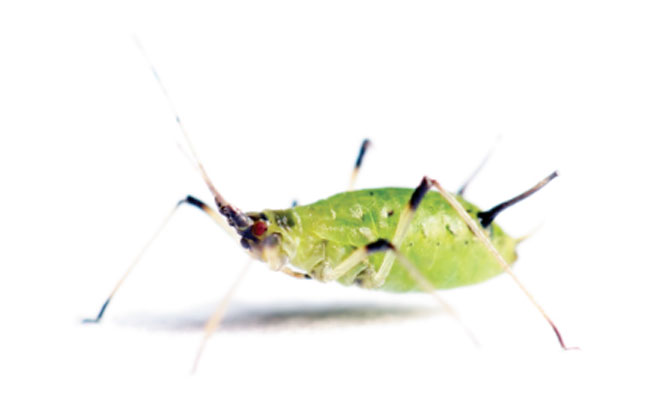
Ants see aphids as a hot commodity, so where there are aphids, there are likely ants. Photo: arlindo71/E+/Getty Images
The secret to reducing ant callbacks this spring may be encouraging your clients to maintain a well-manicured landscape.
Springtime usually is accompanied by increased rainfall and warming temperatures, which lead to explosive vegetation growth. As a result, plant-feeding insects such as aphids and scale also increase in numbers as their food source — plants — becomes more abundant.
Many ant species have a mutualistic relationship with plant-feeding insects, where the ants protect the helpless insects from hungry predators in exchange for sugary liquids produced by the plant feeders. In fact, some ant species go as far as “farming” aphids and scale, much like we farm cattle. Worker ants will herd aphids to younger and more nutritious parts of the plants to encourage feeding and development. As the plant-feeding insect population grows, they produce more sugary liquids to feed the growing ant colony.

Dr. Michael Bentley, BCE
Luckily, the solution to stopping this pesky feedback loop between ants and their tiny sugar-producing companions is simple: In the early weeks of spring, before rainfall increases and vegetation growth takes off, encourage your clients to stay on top of landscape maintenance. This means keeping shrubs well-manicured and undergrowth to a minimum.
Eliminating or reducing the amount of food sources available to plant-feeding insects will help reduce the number of foraging ants on your client’s property. Having a well-maintained landscape also can help reduce potential harborage sites, as growing ant colonies search for protected locations to establish new nests.
With fewer food sources and nesting sites available, your client’s property will be less attractive to opportunistic pest ants looking for a new place to call home ahead of the warmer summer months.
Leave A Comment